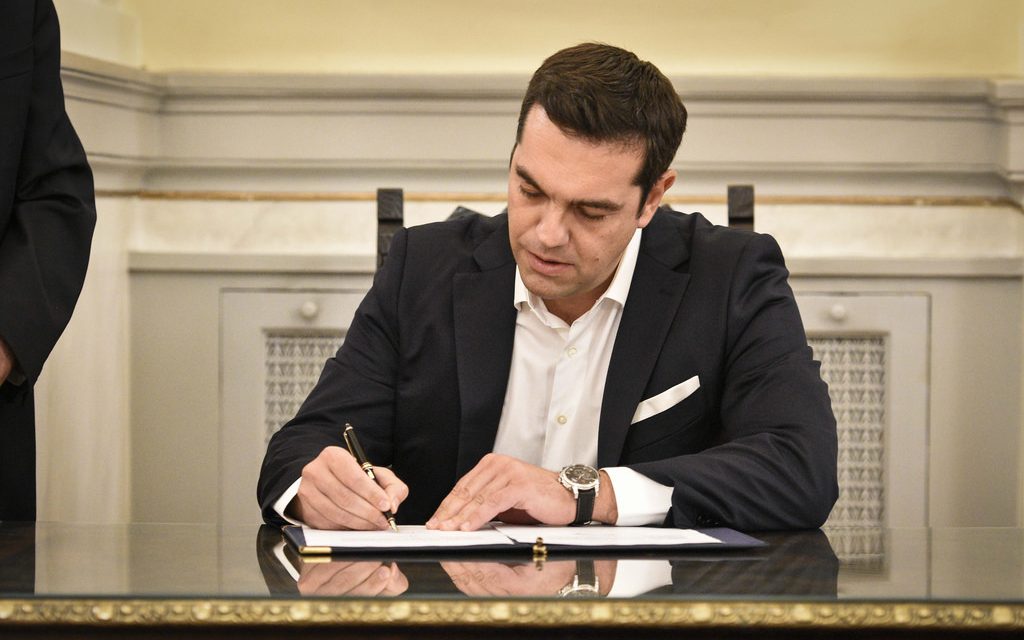Editirial Board, New York Times
Eight months after electing a left-wing political outlier, Alexis Tsipras, to reject more austerity, Greek voters have resoundingly re-elected the selfsame Alexis Tsipras, only this time with a mandate to manage austerity. That could prove to be a sage choice.
Everything depends on how Mr. Tsipras, 41, plays his newly strengthened hand. After fighting fiercely against the harsh measures sought by Greece’s creditors in exchange for another bailout, he finally caved in August. The alternative, basically to abandon the euro currency, was too frightening. That led the hard-liners in Mr. Tsipras’s Syriza party to defect, and persuaded him to call a quick election.
That he succeeded in getting roughly the same vote he had in January even after his surrender showed that Greeks believed in him, believed that he had given the negotiations his best shot, and still preferred his Syriza to the old-guard parties that got Greece into the mess it’s in. New Democracy, the party that according to the polls was neck and neck with Syriza, ended up a full seven percentage points behind, while the Syriza defectors, who formed their own party, failed to clear the 3 percent barrier for a single seat in Parliament.
The good news — a relative concept in a country with very few good options in its future — is that Mr. Tsipras has the mandate and the popular trust to impose the economic measures he agreed to and to pursue the reforms Greece so sorely needs if it is to start reviving its battered economy. New Democracy would support Mr. Tsipras on austerity and reforms, giving him an insurmountable majority in Parliament.
Mr. Tsipras himself declared that his mandate was “crystal clear” to get rid of the “wickedness and the regime of corruption and intertwined interests” embedded in Greek politics. That’s fine, but Greece also needs deregulation, privatization and further slimming of the bloated public sector, all of which runs counter to Mr. Tsipras’s left-wing ideology.
The somewhat sardonic view among some of Greece’s creditors is that having Mr. Tsipras in the driver’s seat is still better than having the right-of-center New Democracy there, if only because he would be a far greater obstacle to reform as leader of the opposition. There is some truth to that; it was after he took charge that he realized that the realities of Greece’s light trumped his ideology.
The creditors — the European Commission, the European Central Bank and the International Monetary Fund — should now recognize that Mr. Tsipras is not a passing phenomenon, but the leader Greeks have seriously put their faith in. It would be in their best interest to set aside all the antipathy of the past eight months and to encourage him toward the difficult decisions he needs to make by seriously reducing the mountain of debt that is choking Greece.
Many more trials, and many unknowns, lie ahead for the Greeks. But at least they’ve finally put some faith in a leader. It would be a shame if he and Greece’s creditors failed to take advantage of this trust.



















